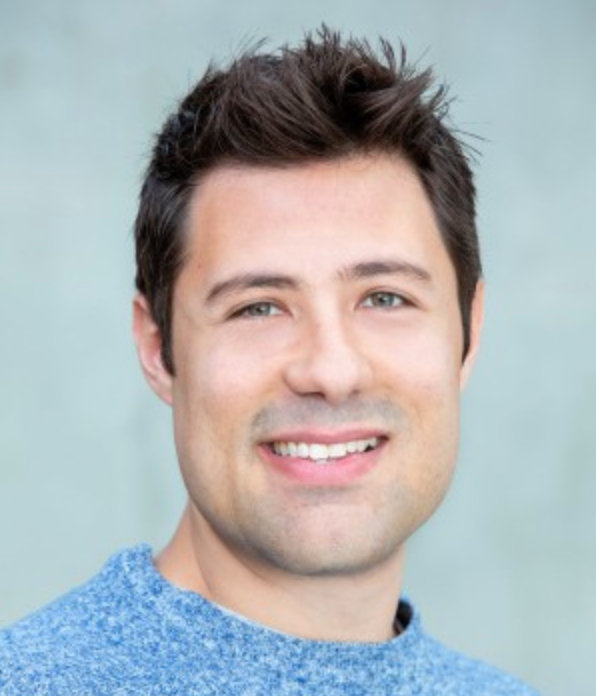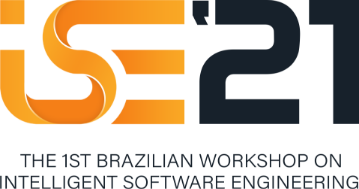About ISE'21
The First Brazilian Workshop on Intelligent Software Engineering (ISE’21) will be held in a virtual form. ISE’21 is is co-located with the 12th Brazilian Conference on Software: Theory and Practice (CBSoft 2021 ).
Aims and Scope
In modern society, software is ubiquitous, being present in almost every aspect of life. However, developing software is costly. Therefore, there is a continuous effort for innovative designs for helping make software more reliable, maintainable, and reduce its development cost. Further, there is an increase of AI-enabled software, bringing new software engineering challenges.
In recent years, Intelligent Software Engineering (ISE) has emerged a promising means to address these challenges. ISE is ambidextrous, including solutions based on (i) applying Intelligent Techniques to Software Engineering problems, but also on (ii) applying Software Engineering to developing Intelligent Systems.
An Intelligent Technique is defined as a technique that explores data (from digital artifacts or domain experts) for knowledge discovery, reasoning, learning, planning, natural language processing, perception, or supporting decision-making. Examples of Intelligent Techniques are search and optimization (e.g., genetic algorithm), machine learning, deep learning, data mining, recommender systems, reasoning under uncertainty (e.g., Bayesian networks), software analytics, and decision analysis. Intelligent System is a system that applies an Intelligent Technique for a given domain, such as a product recommender.
The goal of ISE’21 is to develop a community by integrating researchers from different areas (Software Engineering, Artificial Intelligence, Analytics, etc) to discuss and advance the state of the art and the state of the practice on ISE.
Topics that are within the scope of this workshop include (but are not limited to):
- Artificial Intelligence for Software Engineering (AI4SE)
- Big Code
- Software analytics
- Search-based Software Engineering
- Data mining for Software Engineering
- Recommender systems for Software Engineering
- Machine Learning for Software Engineering (ML4SE)
- Reasoning under uncertainty for Software Engineering
- Natural Language processing for Software Engineering
- Multiple Criteria Decision Analysis for Software Engineering
- Soft computing for Software Engineering
- Expert systems for Software Engineering
- Knowledge-based systems for Software Engineering
- Semantic network for Software Engineering
- Data Science for Software Engineering
- Sentiment Analysis for Software Engineering
- Ontology for Software Engineering
- Requirements Engineering for Intelligent Systems
- Testing and QA for Intelligent Systems
- Design Patterns for Intelligent Systems
- Architecture for Intelligent Systems
- Software Engineering principles for building or maintaining Intelligent Systems
- DevOps for Intelligent Systems such as Machine Learning-enabled Systems (MLOps)
Submission Guidelines
Paper Format
ISE accepts papers in two formats.
Technical Papers (6 pages)
ISE accepts papers within the context of Intelligent Software Engineering. Both positive and negative results are welcome, though negative results should still be based on rigorous research and provide details on lessons learned.
Industry papers (2-4 pages)
Results, challenges, lessons learned from industrial applications of Intelligent Software Engineering.
Instruction for Authors
Papers can be submitted in Portuguese or English. Submission in English is strongly encouraged. The acceptance of a paper implies that at least one of its authors will register at CBSoft 2021 to present it. All submissions must be in Adobe Portable Document Format (PDF) and must comply with the ACM 2-column conference format (ACM_SigConf) available at this link. LaTeX users must use the acmart.cls class provided in the template with the conference format enabled at the document preamble: \documentclass[sigconf]{acmart}
Authors must use the ACM-Reference-Format.bst bibliography style also provided in the template: \bibliographystyle{ACM-Reference-Format}
Submissions must be no longer than the limits defined in the Paper Format section, including all figures and references.
Papers should be electronically submitted through JEMS. Submissions that are not in compliance with the required submission format, are out of the scope of the symposium, or were submitted or published in any other forum (conference or journal) will be rejected without review. All other papers will be reviewed by at least three Program Committee members.
We strongly encourage authors to submit their tools and data to Zenodo, which adheres to FAIR (findable, accessible, interoperable, and re-usable) principles and provides DOI versioning.
Double-Blind Submission
ISE’2021 will follow a double-blind review process. All submitted papers should conceal the identity of the authors. Both author names and affiliations must be omitted. In addition, the following rules should be addressed:
- Citations to own related work must be written in the third person. For example, one must write "the previous work of Silva et al." as opposed to "our previous work." As a heuristic, occurrences of "we", "our", "ours", "github", "funding", etc. should be looked in the paper and removed prior to submitting.
- In the submitted paper, any artifact in a repository or website that allows identifying the authorship should not be mentioned. If any artifact needs to be made available, it should be anonymized in the repository/website.
- Reviewers will not be encouraged to look for references that identify the authors in other sources on the Internet. Searches in digital libraries or existing artifacts do not break the double blind policy.
- If the submitted paper is a follow up of a previous work, the reference may be anonymized in the submitted paper. For example, "the previous work of Silva et al." can be adapted to "based on the previous work [X]" and the reference at the end of the paper can be presented as "[X] Anonymous authors. Not presented due to double blind review.".
After the paper acceptance, all the paper information (without anonymization) can be included in the camera-ready version.
Any questions about the preparation of the paper following the double-blind rules can be sent to the Program Committee Chairs.
Organization, Chairs and Important Dates
Organization:
ISE is a workshop organized and promoted by VIRTUS/UFCG (virtus.ufcg.edu.br).
Chairs:
Hyggo Almeida ( hyggo@virtus.ufcg.edu.br )
Mirko Perkusich ( mirko@virtus.ufcg.edu.br )
Important Dates:
- Paper Submission: July 25, 2021 (extended hard deadline)
- Notification of Acceptance: August 13, 2021
- Camera-Ready: August 20, 2021
- Workshop Date: September 28, 2021
Keynote

Adriano Santos
Title: Solving Highly Complex Problems Involving the Computer Vision Area with SE knowledge.
Description: Opportunities to work with machine learning and deep learning, especially in the context of data science, have grown considerably in recent years, and with this the search for migration in the market of IT professionals to these areas. However, how can software engineering knowledge bring competitive advantages to such a new and growing market? In this keynote, I will share my experiences in the area process and how my knowledge in software engineering helped me in the overseas market and in solving highly complex problems involving the computer vision area.
Mini-bio: Adriano Santos is a Senior Computer Vision Data Scientist at Conception Ro-Main (Quebec-CA) and MTAC Brasil. He received his Ph.D. in Computer Science in 2016, at the Federal University of Campina Grande. His current research interests include Computer Vision, TinyML, Deep Learning model optimization, and GPU programming.

Maurício Aniche
Title: The adventures of a SE (SE, not AI!) researcher with AI4SE
Description: We are all paying attention to Machine and Deep Learning. Due to the impressive learning capabilities of these models, we are now building things that we thought were not possible before, from smarter text translation to self-driving cars.
Now, the question is: can we use AI, machine and deep learning to help software developers in building software? Can models learn how to find bugs? Can models learn what code quality means to you and your team and recommend refactoring? Yes, they can!
In this talk, I will walk you through my adventures in applying machine learning to different SE problems, and the challenges I observe whenever we deploy them in software companies.
Mini-bio:Too theoretical for industry and too practical for academia, Dr. Maurício Aniche is an Assistant Professor in Software Engineering at Delft University of Technology, the Netherlands. His line of work focuses on how to make developers more productive during maintenance and testing. Maurício holds MSc and PhD degrees in Computer Science from the University of São Paulo, Brazil. During his MSc, he co-founded Alura, the now most popular e-learning platform for software engineers in Brazil. Maurício is the author of two popular books among Brazilian developers: "Test-Driven Development in the Real-World" and "SOLID for Ninjas". Now, fully dedicated to academia, Maurício still likes practice and applied research is his favourite thing: everything is messy, nothing works, developers are opinionated, but those are the papers he's most proud of.
- An Exploratory Study of Log Placement Recommendation in an Enterprise System
- Learning Off-By-One Mistakes: An Empirical Study
- Search-Based Software Re-Modularization: A Case Study at Adyen
- The Effectiveness of Supervised Machine Learning Algorithms in Predicting Software Refactoring
- Domain-Based Fuzzing for Supervised Learning of Anomaly Detection in Cyber-Physical Systems
- Search-Based Test Data Generation for SQL Queries
- An Experience Report on Applying Passive Learning in a Large-Scale Payment Company
- David van der Leij's work on refactoring recommendation: work not yet published
- Niek van der Laan's work on defect prediction: work not yet published
Program Committee
- Adriano Santos (Ro-Main, Canada)
- Alexandre Costa (IFPB, Brazil)
- Alfredo Goldman (USP, Brazil)
- Álvaro Filho (UFAPE, Brazil)
- Angelo Perkusich (UFCG, Brazil)
- Emilia Mendes (Blekinge Institute of Technology, Sweden)
- Evandro Costa (UFAL, Brazil)
- Everton Guimarães (Penn State University, USA)
- Felipe Pontes (EDGE/UFAL, Brazil)
- Felipe Ramos (IFPB, Brazil)
- Graziela Tonin (UFFS, Brazil)
- Guilherme Horta Travassos (UFRJ, Brazil)
- Hyggo Almeida (UFCG, Brazil)
- Leandro Minku (University of Birmingham, Great Britain)
- Lenardo Silva (UFERSA, Brazil)
- Mauricio Aniche (TU Delft, Netherlands)
- Mirko Perkusich (VIRTUS/UFCG, Brazil)
- Raul Herbster (Spotify, Sweden)
- Rossana Andrade (UFC, Brazil)
- Tayana Conte (UFAM, Brazil)
Program
September 28, 2021
14:20 - 14:35 "Using Bayesian Networks to Support Managing Technological Risk on Software Projects"
Emanuel Dantas, Ademar Sousa Neto, Mirko Perkusich, Hyggo Almeida, Angelo Perkusich
14:35 - 14:50 "Beyond Subjectiviness: Assessing Abilities and Preferences to Create Software Development Teams"
Lucas Ferreira, Vinícius Ricardo, Laerte Xavier
14:50 - 15:05 "A Decision Support System for Multiple Team Formation"
Felipe Cunha, Mirko Perkusich, Hyggo Almeida, Kyller Gorgonio, Angelo Perkusich
15:05 - 15:20 "Towards a Grounded Theory for a Development Process Model for AI-Enabled Systems"
Andre de Andrade, Rainara Carvalho, Thiago Rique, Maryzangela Cavalcante, Mirko Perkusich, Hyggo Almeida, Angelo Perkusich
15:20 - 15:35 "Continuous Integration for Machine Learning Experiments Reproducibility: a Practical Study"
Andre de Andrade, Marciel Barros Pereira, Samuel Hericles, Francisco Linhares, Antonio de Oliveira Neto, Rossana Andrade, Italo Linhares de Araújo


